‘The Immense Penalty Is Troubling’: Skeptical Judges Grill Attorney General as Trump Appeals $455 Million Fine in Civil Fraud Case
The appeals court judges also seemed receptive to President Trump’s arguments that he was the victim of a selective prosecution that would never have been brought against anyone else.
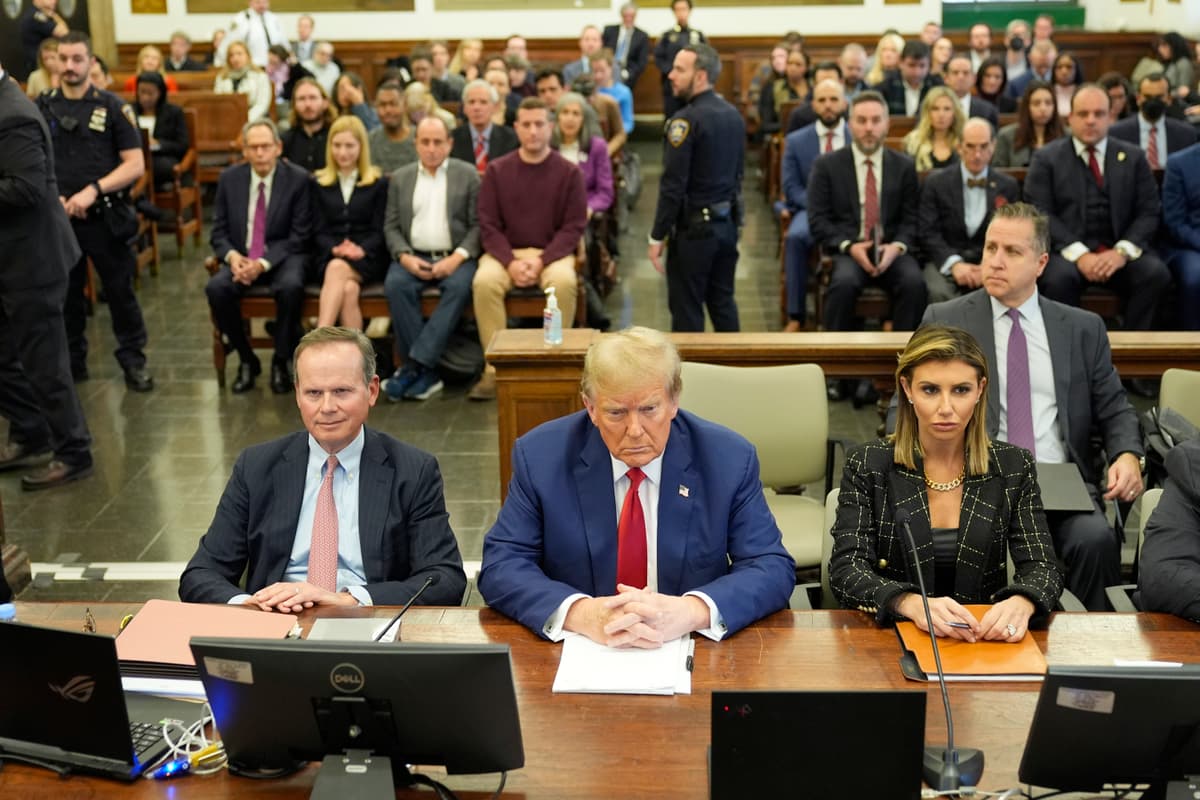
President Trump’s defense attorney fiercely disputed the decision in the civil fraud case, brought against Trump and others by New York’s attorney general, Letitia James, in front of a Manhattan appeals court on Thursday. Several of the five judges on the panel raised skeptical questions about the case, particularly in regard to the $455 million judgment the lower court judge imposed on Trump, his co-defendants and his family business, the Trump Organization.
“The immense penalty in this case is troubling,” Justice Peter Moulton of the Appellate Division First Department told deputy solicitor general Judith Vale, who was arguing the case on behalf of the attorney general.
Ms. James accused Trump, his two adult sons, Don Jr. and Eric, and two veteran Trump Organization employees, the former chief financial officer, Allen Weisselberg, and former controller, Jeff McConney, of having inflated Trump’s net worth and various assets and falsified financial statements in a decades-long scheme to gain more lower interest rates from banks and more favorable insurance policies by “as much $2.2 billion a year.”
The alleged fraud included, for example, the misrepresentation of the size of Trump’s penthouse apartment at his iconic Trump Tower. In every financial statement “from at least 2014 to 2016”, as the attorney wrote in her appeals brief, Trump valued the triplex “as if it were 30,000 square feet. But the apartment was only 10,996 square feet.” And valuing the apartment, she added, “as if it were nearly three times larger than its actual size overstated its value by up to $200 million.”
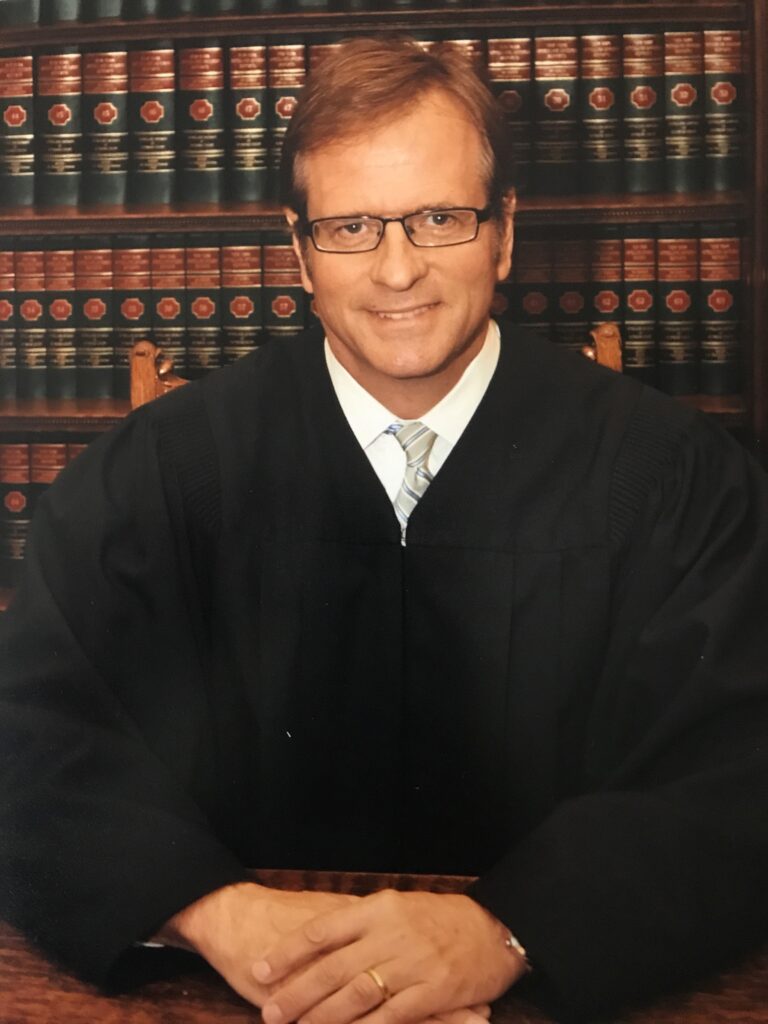
Judge Arthur Engoron, who presided over the case in the lower court, found the Trumps guilty before the trial began, ruling against the family business in what is called a partial pre-trial summary judgment. The trial was held to determine, among other things, how much money Trump would owe New York state as a penalty for the fraud in which Judge Engoron found he had engaged. After eleven weeks and over 40 witnesses, including Trump himself, who took the witness stand to proclaim his innocence, the judge, who also put Trump under a gag order, at which the 45th president chafed, awarded the state more than $355 million dollars, and set interest payments exceeding $100 million.
The roughly $455 million judgment increases by $111,984 per day, $3.4 million per month and $40.9 million per year, based on a 9 percent annual interest rate. A penalty calculator, created by Associated Press journalist Mike Sislak, calculated that as of Wednesday the former president and his co-defendants owe approximately $478.2 million.
The same appeals court that heard arguments on Thursday, previously lowered the amount for the bond, which Trump had to post in order to appeal the case, to $175 million after his defense team argued he could not pay the full sum. At the eleventh hour, he got a loan from the California billionaire and supporter Don Hankey, known as the “king of subprime car loans”, and Ms. James was unable to proceed with seizing Trump assets.
Even though the bond amount was lowered, Trump will still be on the hook for the half-billion dollar judgment should he lose his appeal.
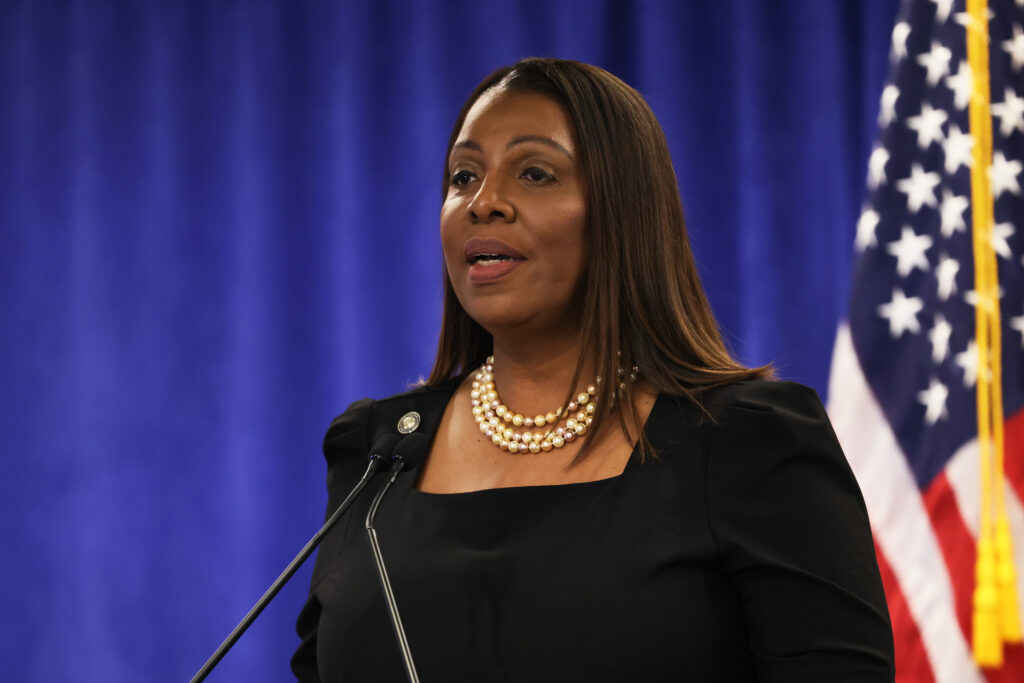
Before the trial even started, several legal experts argued that the Trump Organization would receive little sympathy from Judge Engoron, that an extinction-level judgment should be expected, and that Trump’s chances would be much better on appeal.
Indeed on Thursday, several of the appeals court judges appeared skeptical of the verdict. Judge Moulton asked how the attorney general justified such a large penalty, when neither the banks nor the insurance companies that dealt with Trump had ever complained about their transactions.
“So how do you tether the amount that was assessed by the Supreme Court to the harm that was caused here, where the parties left these transactions happy about how these transactions went down?” Judge Moulton asked Ms. Vale.
Trump’s lawyers had raised this argument during the trial, and also at Thursday’s appeals court hearing. Defense attorney, John Sauer, who represented Trump in his successful appeal to the Supreme Court in July over presidential immunity, a separate case, reiterated that there were “no victims” and “no complaints” by banks and insurers named in the case, on the contrary the loans had all been paid back in full and the transactions turned out successful for all parties.
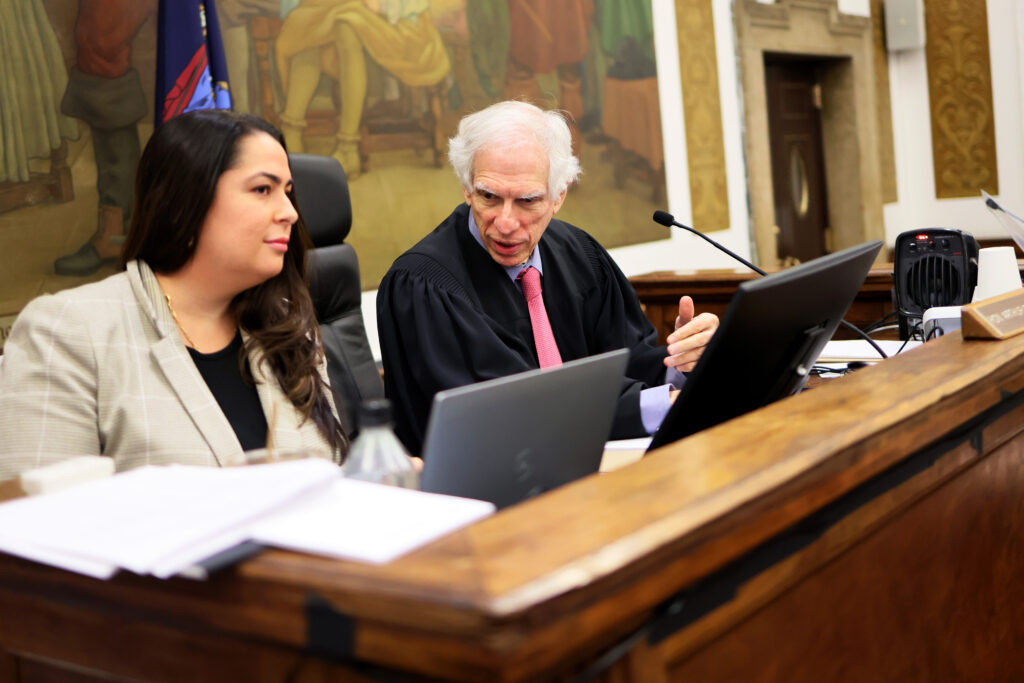
Ms. Vale pushed back, saying the “large” judgment was “a large number for a couple reasons.” She cited the amount of alleged fraud, and the length of time, and said, “the financial statements each year worked to get enormously favorable interest rate savings to the defendants.” She added that calling a “fraud was very successful” should not be used as an “excuse” to commit it.
Trump’s legal team has consistently argued that his prosecution was political, brought by an elected Democrat, Ms. James, who’d campaigned on a pledge to go after Trump. His legal team also objected to the presence of Judge Engoron’s principal law clerk, also a Democrat, named Allison Greenfield, who sat next to Judge Engoron. Ms. Greenfield, the defense complained, was “co-judging” by whispering with the judge, and “rolling her eyes.”
Trump posted a picture on social media of Ms. Greenfield and the Senate majority leader, which Trump tagged with the spurious caption, “Schumer’s girlfriend.” Because Ms. Greenfield began receiving hate mail, hostile calls to her personal cell phone, threatening messages on social media platforms and to her personal email accounts, many of which were antisemitic, Judge Engoron imposed a gag order on Trump, and later on his attorneys, forbidding them from making public comments about his court staff, including any remarks about the communications between him and his staff, who were hired to aid in carrying out his “adjudicative responsibilities.” The judge fined Trump a total sum of $15,000 for violating the gag order, after he continued making public comments about Ms. Greenfield.
On Thursday, the appeals court justices were receptive to Trump’s arguments. Judge David Friedman, who interrupted Ms. Vale before she could even finish the very first sentence of her argument, asked if she could identify any other cases, in which an attorney general sued under the same statute, “to upset a private business transaction…where the supposed victim had the ability and legal obligation to discover the allegedly misrepresented matters by conducting its own due diligence, where the supposed wrongdoer advised the supposed victim through written disclaimers to conduct its own due diligence and to draw its own conclusions…”

Trump raised this disclaimer argument numerous times during the trial. When he was on the witness stand, he took a paper out of the inside pocket of his blazer, offering to read the disclaimer, in which his company advised banks and insurance companies to do their own research and calculate their own numbers, outloud to the court.
Judge Friedman took his question even further, saying the alleged “misrepresentations” on the financial statements, “almost entirely concerned subjective evaluations of properties and businesses,” and referring to Trump’s core argument, raised concern that none of the banks nor the insurance companies ever complained about the transactions.
Before Ms. Vale could even begin to respond, another judge, Llinét Rosado, found that Trump’s alleged misconduct had “little to no impact on the public marketplace.”
Ms. Vale fired back that there was “absolutely a public impact” and “a public interest” here, and a concern for the “honest business people… who don’t do the misconduct and therefore don’t get the kind of benefit that they got here.”
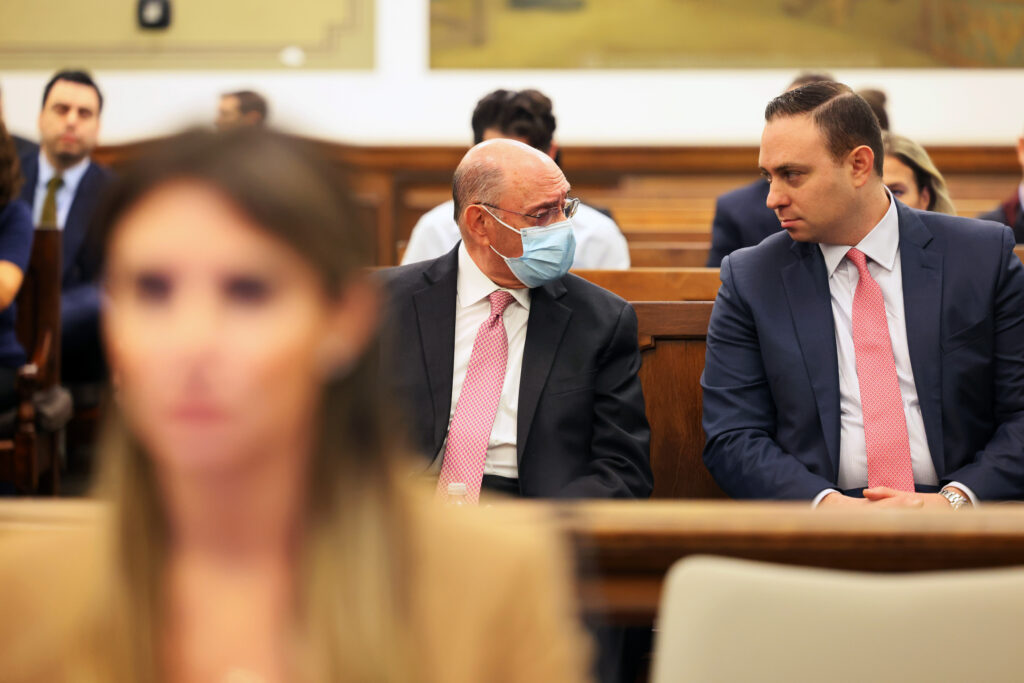
Here, Judge Friedman interrupted the deputy solicitor general again, asking if she was referring to the lower interest rates she accused Trump of receiving due to his alleged falsifications, “and haven’t you, yourself conceded that the assets were sufficient to get the lower interest rate at the private wealth management direction?” Again, the judge repeated an argument the defense had made earlier, that Trump would have received “exactly the same” interest rates even with “a different net worth.”
“Absolutely not, your honor,” Ms. Vale fired back, “that is absolutely not conceded, not one bit.” She cited witnesses from Deutsche Bank, who testified that “the financial strength of the guarantor affects the pricing of the loan,” and “it affects whether the private wealth management group would be allowed to do this deal at all.”
“Deutsche Bank would not have given these loans without the financial strength being inflated,” Ms. Vale doubled down. “The financial statements were coming in each year, and they were important, critical to the loans each year.”
But Judge Friedman interrupted a third time, asking if the witness she was referring to, now-retired Deutsche Bank executive Nicholas Haigh, hadn’t also testified that “there were 14 factors” by which the bank assessed their loans, and “this one was the least important factor?”
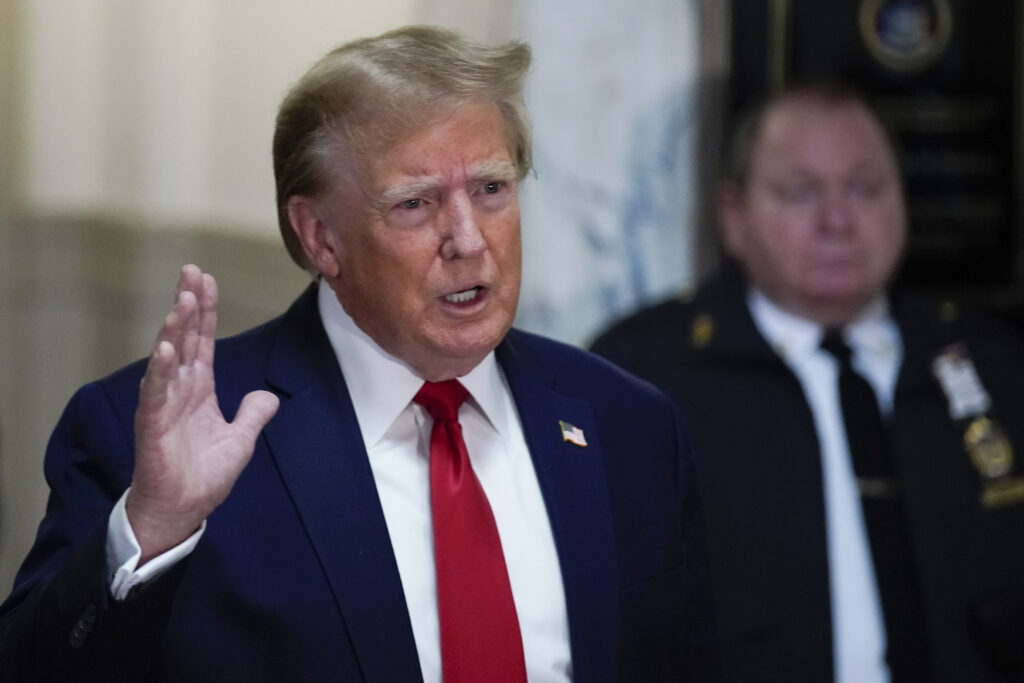
Ms. Vale insisted that the financial statements mattered, because Deutsche Bank was reassessing the loans “every single year.”
“I am sorry,” another judge, John Higgitt, intervened, “but what’s being described sounds an awful lot like a commercial dispute between private actors.” He also questioned the New York fraud statute, Executive Law 63 (12), under which the attorney general brought her case against the Trumps.
“How do we draw a line or put up some guardrails to know when the attorney general is operating within her broad sphere or 63(12) or going into an area where she doesn’t have jurisdiction?” he asked.
Ms. Vale fought back saying the statute aims to “stop the fraud and illegality before the counterparties are harmed.”
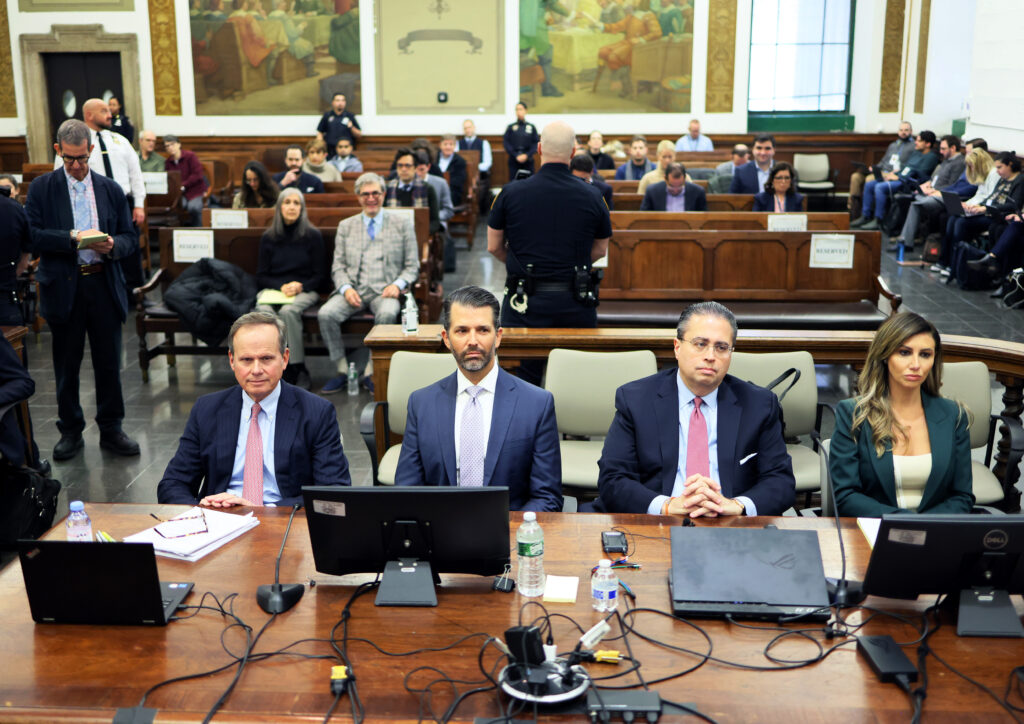
Overall, the judges, who were seated underneath the historic stained glass courtroom dome ceiling, seemed to have more questions for the attorney general than for Trump.
The Appellate Division usually rules about four to six weeks after oral arguments are heard. A decision could or could not come before Election Day, and could uphold the lower court’s verdict, modifying the penalty, or overturn the verdict entirely.
Both parties, Trump and the attorney general, can take the decision to the state’s highest court, the Court of Appeals. Trump has said that he is willing to fight the verdict “all the way up to the U.S. Supreme Court if necessary.”

